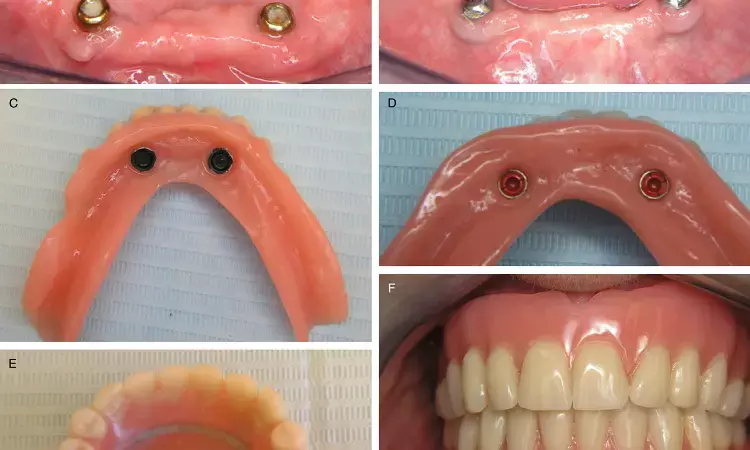- Home
- Medical news & Guidelines
- Anesthesiology
- Cardiology and CTVS
- Critical Care
- Dentistry
- Dermatology
- Diabetes and Endocrinology
- ENT
- Gastroenterology
- Medicine
- Nephrology
- Neurology
- Obstretics-Gynaecology
- Oncology
- Ophthalmology
- Orthopaedics
- Pediatrics-Neonatology
- Psychiatry
- Pulmonology
- Radiology
- Surgery
- Urology
- Laboratory Medicine
- Diet
- Nursing
- Paramedical
- Physiotherapy
- Health news
- Fact Check
- Bone Health Fact Check
- Brain Health Fact Check
- Cancer Related Fact Check
- Child Care Fact Check
- Dental and oral health fact check
- Diabetes and metabolic health fact check
- Diet and Nutrition Fact Check
- Eye and ENT Care Fact Check
- Fitness fact check
- Gut health fact check
- Heart health fact check
- Kidney health fact check
- Medical education fact check
- Men's health fact check
- Respiratory fact check
- Skin and hair care fact check
- Vaccine and Immunization fact check
- Women's health fact check
- AYUSH
- State News
- Andaman and Nicobar Islands
- Andhra Pradesh
- Arunachal Pradesh
- Assam
- Bihar
- Chandigarh
- Chattisgarh
- Dadra and Nagar Haveli
- Daman and Diu
- Delhi
- Goa
- Gujarat
- Haryana
- Himachal Pradesh
- Jammu & Kashmir
- Jharkhand
- Karnataka
- Kerala
- Ladakh
- Lakshadweep
- Madhya Pradesh
- Maharashtra
- Manipur
- Meghalaya
- Mizoram
- Nagaland
- Odisha
- Puducherry
- Punjab
- Rajasthan
- Sikkim
- Tamil Nadu
- Telangana
- Tripura
- Uttar Pradesh
- Uttrakhand
- West Bengal
- Medical Education
- Industry
Lower Peri dental Implant Soft Tissue Thickness tied to More Peri-Implant Bone Remodeling

Researchers have found in a new study that Thinner Peri-Implant Soft Tissue Thickness is associated with More Peri-Implant Bone Remodeling.
The new research has been published in the Clinical Oral Implants Research.
The aim of the present review and meta-analysis was to evaluate the influence of soft tissue thickness on initial bone remodeling after implant installation.
A literature search was conducted by two independent reviewers on electronic databases up to May 2022. Randomized controlled trials (RCTs) and controlled clinical trials (CCTs) performed on human subjects were included. The risk of bias was evaluated using Cochrane Collaboration's tool. Meta-analysis and Trial Sequential Analysis (TSA) were performed on the selected articles. The primary outcome was marginal bone loss.
Results:
After screening, 6 studies were included in the final analysis, with a total of 354 implants, and a follow-up from 10 to 14 months. 194 implants were placed in a ≥ 2 mm soft tissue thickness, while 160 had <2 mm soft tissue thickness before implant placement. The included studies had a high level of heterogeneity (I2 > 50%). The meta-analysis indicated a statistically significant difference between the two groups (0.54; p = .027) and the TSA analysis confirmed the results, despite the limited number of dental implants. Additional analysis showed that age and follow-up parameters were not statistically significant factors influencing the bone loss (p = .22 and p = .16, respectively).
Based on the available RCTS and CCTs, initial soft tissue thickness seems to influence marginal bone loss after a short follow-up period. Based on TSA analysis, further studies are needed to assess the influence of the soft tissue thickness on marginal bone loss. PROSPERO registration number: CRD42021235324.
Reference:
Bressan E, Guazzo R, Tomasi C, Peña TG, Galindo-Moreno P, Caponio VCA, Sbricoli L, Canullo L. Influence of soft tissue thickness on marginal bone level around dental implants: A systematic review with meta-analysis and trial-sequential analysis. Clin Oral Implants Res. 2023 Feb 3. doi: 10.1111/clr.14032. Epub ahead of print. PMID: 36737243.
Dr. Shravani Dali has completed her BDS from Pravara institute of medical sciences, loni. Following which she extensively worked in the healthcare sector for 2+ years. She has been actively involved in writing blogs in field of health and wellness. Currently she is pursuing her Masters of public health-health administration from Tata institute of social sciences. She can be contacted at editorial@medicaldialogues.in.
Dr Kamal Kant Kohli-MBBS, DTCD- a chest specialist with more than 30 years of practice and a flair for writing clinical articles, Dr Kamal Kant Kohli joined Medical Dialogues as a Chief Editor of Medical News. Besides writing articles, as an editor, he proofreads and verifies all the medical content published on Medical Dialogues including those coming from journals, studies,medical conferences,guidelines etc. Email: drkohli@medicaldialogues.in. Contact no. 011-43720751


